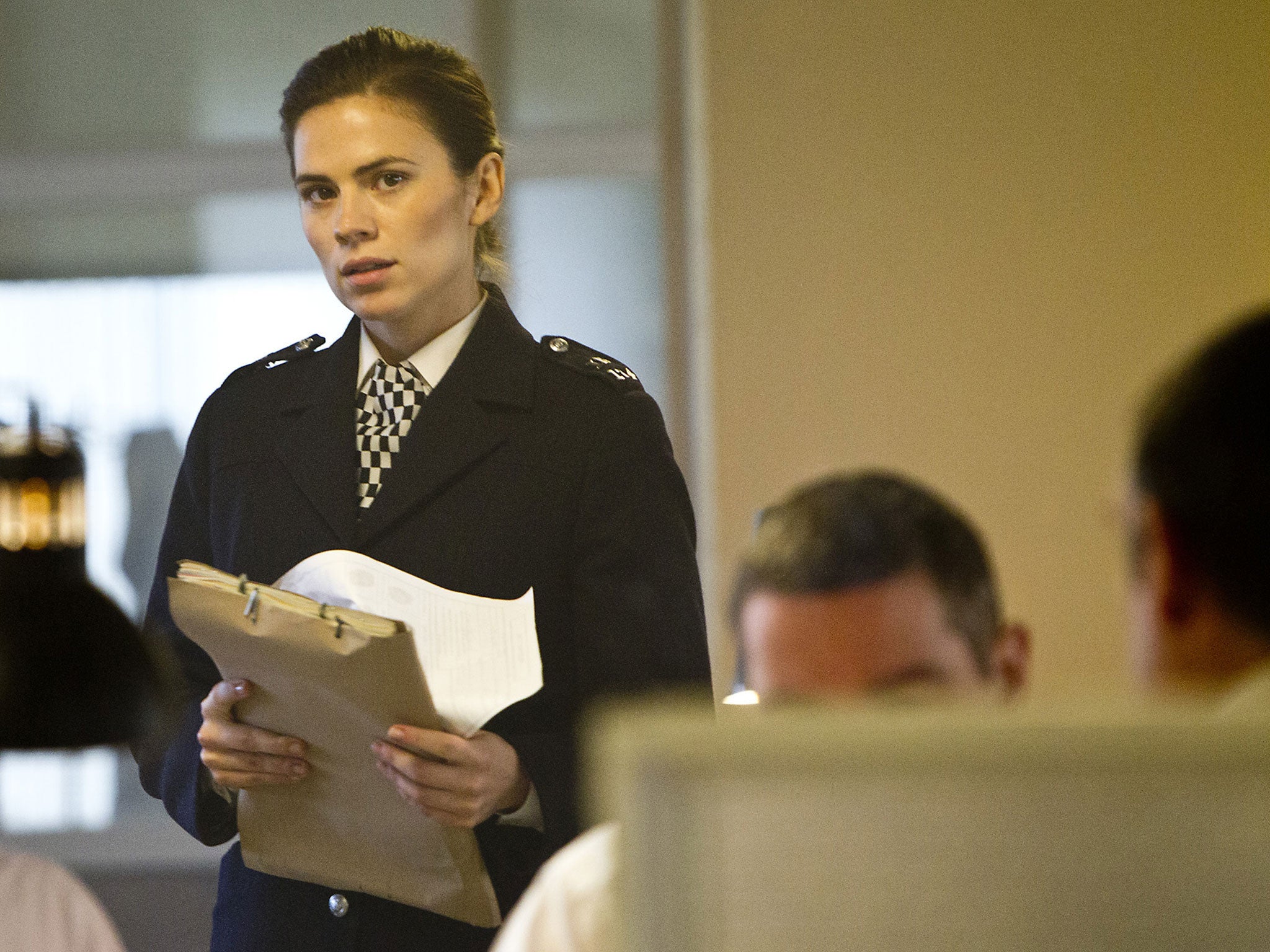TV review: Life of Crime - Best get your story straight, ma'am ...
Two classy crime-dramas; first a tale hectically spanning the decades, then a real slow burner

Your support helps us to tell the story
From reproductive rights to climate change to Big Tech, The Independent is on the ground when the story is developing. Whether it's investigating the financials of Elon Musk's pro-Trump PAC or producing our latest documentary, 'The A Word', which shines a light on the American women fighting for reproductive rights, we know how important it is to parse out the facts from the messaging.
At such a critical moment in US history, we need reporters on the ground. Your donation allows us to keep sending journalists to speak to both sides of the story.
The Independent is trusted by Americans across the entire political spectrum. And unlike many other quality news outlets, we choose not to lock Americans out of our reporting and analysis with paywalls. We believe quality journalism should be available to everyone, paid for by those who can afford it.
Your support makes all the difference.Spanning three decades in total, ITV's three-part cop drama Life of Crime, lurched from 1985 to 1997 last week. The telly shorthand hasn't grown any more subtle: while the Eighties were cued with Culture Club and Maggie Thatcher on the radio, endemic sexism and racism throughout the Met, and the Brixton riots (and all filmed in a nicotine-yellow grimy hue), for the crisper Nineties we've got Blur and Oasis, chunky mobile phones and Diana dying.
But that's partly the point: as much as the series wants to follow policewoman Denise Wood up the career ladder, from foolhardy young "Doris" to detective inspector, Life of Crime also wants to reveal the shifting prejudices and social norms of different eras – and the sticky issues we still haven't resolved. While the "policing's no job for a woman" attitude of 1985 may be long gone, the more invidious judgements of Denise in this second episode, about her prioritising work over family, are hardly a thing of the past.
The flagging up of such issues can be heavy handed: just as Life of Crime screams when it is set, it also hits you repeatedly over the head with a big foam mallet marked Issue of the Day. Fortunately, Denise is played by Hayley Atwell, who gives the sort of sensitive, subtle performance we've come to expect from her, softening those blows.
Denise first appeared your typical good-hearted bobby with integrity, until she falsified evidence in order to convict a murderer – which wrong-footed the viewer. That was a touch too maverick even for a telly cop. On Friday, in part two, her deception was raked up after another girl was found raped and strangled. The mistakes of Denise's past were soon impacting not only on her career but her relationship with her husband, who was – awkward! – her co-worker on the original case. He felt implicated, and betrayed, by her lies; Richard Coyle believably delivered this wounded weariness, as Atwell went into a panicky tailspin.
The personal, it turns out, is considerably more gripping than the political: Life of Crime moved from a wannabe gritty, historical crime drama to one with real emotional punch. And in the final quarter of an hour, it lunged back into a criminal mystery again, as Denise continued to ferret around the case, determined not to let the girls' killer get away… by which time, I was hooked. Roll on the Noughties.
It was a good week if you like your pretty young female TV stars, er, raped and strangled: there was another clutch of them bumped off this way in new BBC crime drama The Fall (BBC2, Monday ****). A five-part, intriguingly slow burner made by BBC Northern Ireland and set in Belfast, it distinguishes itself from the start by introducing viewers to the killer and the detective – Jamie Dornan and Gillian Anderson, respectively – at the same time. So it's less whodunit and more how-long's-he-gonna-carry-on-getting-away-with-it, but the two strands are intertwined skilfully by the writer Allan Cubitt. And yes, here's another female, rather gorgeous, Met detective. Is this all some sneaky recruitment drive to attract more women to the force by offering glamorous role models?
The Fall is a classy bit of television: it looks as smooth and expensive as the silk shirts worn by Anderson's terrifyingly capable detective superintendent, flown in from London to work on the unsolved murder investigation. Here, Anderson, ever- watchable, seems particularly perfectly cast: she's haughty and imperious enough as the chilly, chiselled blonde DSI Stella Gibson to make her odd moments of straight talking eyebrow-raisingly amusing. She cuttingly dismisses the Northern Ireland religious and political situation as "All that 'my Jesus is better than your Jesus' stuff".
While The Fall, emulating American serials and Scandi-dramas, takes its slow, occasionally treacly time over telling the story – there's plenty of moody lingering on the killer's psycho-sexual fetish doodlings, for instance – there are also moments of real tension. It veers into horror movie mode at points, people creeping round houses with torches, noses in the knicker drawers, or sweeping for intruders. The soundtrack – rare this – is great too. Instead of the usual over-ripe scoring, there are eery electronic strains and hisses.
It's really rather nerve-wracking at times. And, like Life of Crime, worth catching up on – just don't do a double bill if you're planning on leaving the house after dark or re-organising your underwear drawer any time soon.
Join our commenting forum
Join thought-provoking conversations, follow other Independent readers and see their replies
Comments